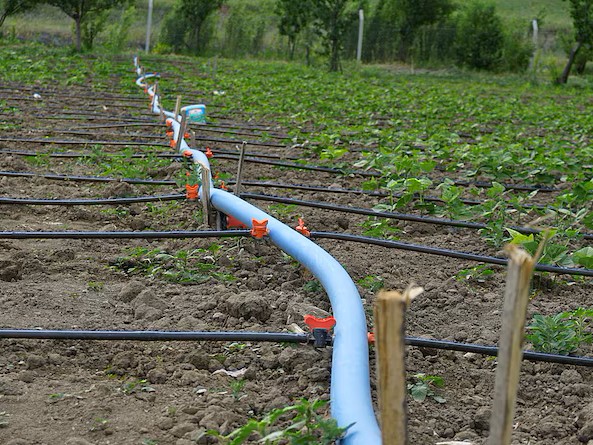South African farmers are facing increasing challenges due to persistent droughts and water shortages. With climate change intensifying, access to efficient water management solutions is becoming more critical than ever. One country that has successfully tackled water scarcity is Israel. Known for transforming its arid landscape into a thriving agricultural hub, Israel has developed innovative water-saving technologies that could help South African farmers adapt to harsh conditions and ensure food security.
Why South Africa Needs Water-Saving Solutions
Water scarcity is one of the biggest threats to agriculture in South Africa. Many farming regions suffer from erratic rainfall, declining dam levels, and high evaporation rates. Traditional irrigation methods often lead to excessive water use, making it difficult for farmers to sustain their crops during drought periods. Without innovative solutions, food production could decline, leading to economic losses and increased pressure on food supply chains.
Israeli Water-Saving Technologies That Can Help South Africa
1. Drip Irrigation: Precision Watering for Maximum Efficiency
Israel pioneered modern drip irrigation, a technique that delivers water directly to the roots of plants in small, controlled amounts. Unlike traditional flood irrigation, which wastes large amounts of water through runoff and evaporation, drip irrigation ensures that crops receive only the water they need. South African farmers using this technology can significantly reduce water usage while maintaining high yields.
2. Desalination: Turning Seawater into Freshwater
With long coastlines, South Africa has access to abundant seawater. Israeli desalination technology, which converts seawater into fresh, drinkable water, could provide an alternative water source for agriculture. Using advanced filtration and reverse osmosis techniques, desalination plants can help farming communities reduce their dependence on unpredictable rainfall.
3. Wastewater Recycling for Irrigation
Israel reuses over 85% of its wastewater for irrigation, making it a global leader in water recycling. By treating and purifying wastewater, South African farmers could use this sustainable water source for irrigation instead of relying solely on fresh groundwater and rainfall. This approach could help preserve drinking water supplies while ensuring that farms remain productive.
4. Smart Irrigation Systems and AI Monitoring
Israeli companies have developed AI-powered irrigation systems that monitor soil moisture, weather conditions, and crop needs in real time. These systems use sensors and data analytics to determine the optimal amount of water required, preventing waste and improving efficiency. By adopting such technology, South African farmers can make precise irrigation decisions and conserve valuable water resources.
5. Atmospheric Water Generators: Harvesting Water from the Air
Israeli startups have designed atmospheric water generators that extract moisture from the air and convert it into clean, usable water. This technology can be especially useful in dry regions of South Africa where groundwater is scarce. By producing water directly from the atmosphere, farmers can reduce dependence on unreliable rainfall.
Challenges and Opportunities for Adoption
While Israel’s water-saving technologies offer immense potential, their implementation in South Africa faces challenges. High initial costs, lack of technical knowledge, and infrastructure limitations can slow down adoption. However, partnerships between governments, private investors, and agricultural organizations can help overcome these barriers.
South Africa can benefit from collaborations with Israeli agritech firms, research institutions, and funding programs to make these innovations more accessible to local farmers. Training initiatives and pilot projects can also play a crucial role in demonstrating the effectiveness of these technologies.
As droughts become more frequent and severe, South African farmers must embrace innovative water-saving technologies to secure their future. Israel’s expertise in water management offers a proven blueprint for transforming dry regions into productive agricultural hubs. By integrating drip irrigation, desalination, wastewater recycling, AI-driven irrigation, and atmospheric water generation, South Africa can build a more resilient farming sector capable of withstanding climate challenges.
Join 'Farmers Mag' WhatsApp Channel
Get the latest Farming news and tips delivered straight to your WhatsApp
CLICK HERE TO JOIN






